Nicotinamide mononucleotide (NMN) is a vital precursor to Nicotinamide Adenine Dinucleotide (NAD+), a coenzyme crucial for cellular energy production and metabolic processes. As we age, NAD+ levels naturally decline, leading to various age-related health issues. NMN supplementation has emerged as a promising approach to counteract these declines. In animal studies, β-NMN supplementation has been shown to increase NAD concentrations, improving health span and lifespan with great safety.
Human trials about the efficacy of NMN are limited with almost none on Indian ethnicity, a population with a wide gene pool. This Indian clinical trial was a combined effort by researchers at the National University of Singapore's Healthy Longevity Translational Research Program, and Vrije Universiteit Amsterdam's Department of Human Movement Sciences.
The trial was conducted at two clinic centres: Lotus Healthcare and Aesthetics Clinic, and Sunad Ayurved (both in Pune, India), with Dr A. Vaidya being the lead researcher. This study sheds light on the optimal daily dose, potentially transforming our understanding of health and ageing.
According to lead researcher Dr Vaidya, "NMN supplementation at 600mg presents a significant stride in anti-ageing research, offering a practical approach to maintaining crucial NAD+ levels for healthy ageing."
The primary goal of this study was to assess blood NAD+ concentration with dose-dependent regimens. Secondary objectives included evaluating safety, tolerability, and clinical efficacy in terms of physical performance, blood biological age, insulin resistance, and subjective general health assessment.
Study Design
The trial was a randomised, multicenter, double-blind, placebo-controlled clinical trial, that involved 80 middle-aged healthy adults. Participants were randomized for a 60-day trial with once-daily oral dosing of placebo, 300mg, 600mg, or 900mg NMN. Inclusion criteria included age between 40-65 years, BMI between 18.5 and 35 kg/m2, abstaining from niacin-containing supplements, maintaining consistent diet and lifestyle habits, agreeing to use effective contraceptive methods, providing informed consent, and adhering to trial directions. Participants visited clinic centres four times for eligibility screening, baseline assessment and randomization, mid-point efficacy assessment at day 30, and end-of-trial assessment at day 60.
Effect of NMN Supplementation on Blood NAD+ Levels

Fig 1: Blood NAD+ concentrations, Baseline vs Day 60: NMN supplementation significantly raised NAD+ levels in all NMN-treated groups at 60-day marks compared to the baseline. No statistically significant change in NAD+ levels was observed in the placebo group.
Measuring the NAD+ levels was the primary objective of the trial. The trial demonstrated a statistically significant and dose-dependent increase in blood NAD+ concentrations in all NMN-treated groups at both the 30 and 60-day marks.
Blood NAD concentrations showed a statistically significant increase over baseline in all three NMN-treated groups at both days 30 and 60, while there were no notable changes in the placebo group during the same periods. In comparison to the placebo group, blood NAD concentrations were significantly higher for all three NMN-treated groups at both days 30 and 60. Furthermore, the 600 mg NMN group exhibited significantly higher NAD concentrations than the 300 mg NMN group at both the 30-day and 60-day marks. However, there was no statistically significant difference observed between the 600 mg and 900 mg NMN groups.
This suggests that NMN supplementation effectively raises NAD+ levels in the blood, addressing the natural decline associated with ageing. The absence of significant changes in the placebo group underscores the specificity of NMN's impact.
Safety and Tolerability of NMN Supplementation
To assess tolerability, the study compared treatment and placebo groups by analyzing the number of dropouts due to adverse events (AEs). Clinical laboratory tests confirmed the safety and tolerability of NMN supplementation at a daily dose of up to 900 mg. Most parameters, when compared to the placebo group, exhibited no statistically significant differences. Changes in MCHC, LDL at 900 mg NMN, and uric acid nitrogen at 600 mg NMN were observed but remained within acceptable limits. Importantly, the groups receiving 600 mg and 900 mg NMN showed no adverse effects, assuring the safety of NMN supplementation at these levels.
Effect of NMN Supplementation on Physical Endurance
The 6-minute walking test adhered to the protocol outlined by the American Thoracic Society, designed to assess endurance and energy levels. Participants walked on a manual treadmill simulating real-world conditions, with the distance covered measured using a digital odometer.
Importantly, participants in the 600 mg NMN-treated group displayed a statistically significant increase in walking distance compared to the 300 mg NMN-treated group at 30- and 60-day intervals. No statistical difference in walking distance was observed between the 900 mg and 600 mg NMN-treated group. These findings imply that NMN supplementation at 600 mg positively influenced physical endurance, as evidenced by the outcomes of the six-minute walking test.
Effect of NMN Supplementation on Biological Age
The study employed the Aging.Ai 3.0 model to evaluate blood biological age, utilizing a calculator from Insilico Medicine, Inc., based in Hong Kong and New York. Biological Age Test results indicated subtle variations in participants' biological age across different NMN dosages.
Notably, blood biological age did not significantly change over time within the NMN-treated groups, suggesting that NMN supplementation contributed to maintaining biological age. In contrast, the placebo group exhibited a significant increase in biological age from baseline to day 60. These findings suggest a potential protective effect of NMN supplementation against biological ageing.
Effect of NMN Supplementation on Subjective General Health Assessment
The assessment of subjective general health, gauged by SF-36 scores(SF-36 is a questionnaire that assesses participants’ overall health status or quality of life), indicated variations in baseline and day 60 values across different NMN dosages. At day 60, participants in all three NMN-treated groups, and at day 30 for the 600mg and 900mg groups, reported significantly better SF-36 scores compared to the placebo group. This enhancement in subjective general health assessment suggests that NMN supplementation positively influenced the overall health status of middle-aged adults. Notably, higher doses and prolonged NMN treatment were associated with improved SF-36 scores.
Nicotinamide Mononucleotide Availability in India
Nicotinamide Mononucleotide (NMN) has gathered considerable attention as a longevity molecule through extensive studies conducted by leading institutions and laboratories globally. It's noteworthy that NMN exists in two distinct isomers: α-type and β-type. Research findings, as highlighted by Hong et al. in 2020, emphasise that only the β-type NMN exhibits biological activity. Decode Age Uthever NMN offers β-type NMN supported by a clinical trial conducted by Huang in 2022. The results of this trial demonstrated a notable 38% improvement in NAD+/NADH levels compared to the baseline, underscoring the efficacy of β-type NMN supplementation.
Conclusion
In summary, the implications of the study suggest that NMN supplementation positively impacts various aspects of health and ageing. The increase in NAD+ levels, coupled with the improvements in physical performance, biological age maintenance, and subjective general health, indicates the potential of NMN as a supplement for enhancing overall well-being and potentially slowing aspects of the ageing process. While these findings are promising, further research is necessary to comprehensively understand the long-term effects of NMN supplementation.
FAQs:
1) Is NMN scientifically proven?
Indeed, scientific evidence supports the positive impact of Nicotinamide Mononucleotide (NMN) on NAD+/NADH levels. NMN actively engages in the energy metabolism process, contributing to improved energy levels. Additionally, its benefits extend to repairing DNA damage, promoting heart health, and enhancing overall endurance and vitality. These findings highlight the multifaceted advantages of NMN supplementation in fostering various aspects of health and well-being.
2) Is it worth taking an NMN supplement?
There is evidence indicating that supplementing with doses of NMN could potentially raise NAD+ levels, enhance physical performance, and positively impact specific aspects of metabolic health, including insulin sensitivity.
3) Does David Sinclair still take NMN?
David Sinclair, a prominent anti-ageing researcher affiliated with Harvard University, renowned for his studies on resveratrol, NAD+, and sirtuins, incorporates a daily routine of consuming 1000mg of NMN with his yoghurt. Sinclair reports experiencing enhanced energy levels, improvements in lipid profile, and a reduction in biological age as a result of this regimen.
4) Can NMN reverse skin ageing?
Loose skin and wrinkles are often associated with ageing, and supplementing with NMN to increase NAD+ levels in the body may potentially contribute to reversing these signs. A study has reported that NMN supplementation led to improvements in skin health.
5) Is NMN better with resveratrol?
The synergistic use of resveratrol and NMN holds considerable promise for enhancing both anti-ageing effects and metabolic health. A study featured in the Journal of Medicinal Food reported that supplementing with NMN and resveratrol resulted in increased Sirt1 expression in individuals with type 2 diabetes. Sirt1, a specific type of sirtuin, has been associated with enhanced glucose metabolism and improved insulin sensitivity.
6) Is NMN the best anti-ageing supplement?
As individuals age, there is a natural decline in tissue and cellular NAD+ levels. The restoration of NAD+ levels holds promise for delaying or potentially reversing various age-related disorders. NMN, by replenishing NAD+ levels, has shown positive outcomes in addressing conditions such as diabetes, cardiovascular issues, cognitive impairment, and other age-related health concerns.
7) Which NMN brand is best?
NMN exists in two distinct isomers: α-type and β-type. Research findings emphasise that only the β-type NMN exhibits biological activity. Decode Age Uthever NMN offers β-type NMN supported by clinical trials
Reference:
Yi, L., Maier, A. B., Tao, R., Lin, Z., Vaidya, A., Pendse, S., ... & Kumbhar, V. (2023). The efficacy and safety of β-nicotinamide mononucleotide (NMN) supplementation in healthy middle-aged adults: A randomized, multicenter, double-blind, placebo-controlled, parallel-group, dose-dependent clinical trial. GeroScience, 45(1), 29-43. https://link.springer.com/article/10.1007/s11357-022-00705-1?_kx=u3MrNo9Qi_KIeY3BR-qj4XeDIVV3RgEmVj6Ubyirj8dtiLG11yGLFU1uOJWE2RQP.Y46Ge8
ATS Committee on Proficiency Standards for Clinical Pulmonary Function Laboratories (2002). ATS statement: guidelines for the six-minute walk test. American journal of respiratory and critical care medicine, 166(1), 111–117. https://doi.org/10.1164/ajrccm.166.1.at1102
Isaev, F. I., Sadykov, A. R., & Moskalev, A. (2023). Blood Markers of Biological Age Evaluates Clinic Complex Medical Spa Programs. Biomedicines, 11(2). https://doi.org/10.3390/biomedicines11020625
Lins, L., & Carvalho, F. M. (2016). SF-36 total score as a single measure of health-related quality of life: Scoping review. SAGE Open Medicine. https://doi.org/10.1177/2050312116671725
Gayoso-Diz, P., Otero-González, A., Rodriguez-Alvarez, M.X. et al. Insulin resistance (HOMA-IR) cut-off values and the metabolic syndrome in a general adult population: effect of gender and age: EPIRCE cross-sectional study. BMC Endocr Disord 13, 47 (2013). https://doi.org/10.1186/1472-6823-13-47
Hong, W., Mo, F., Zhang, Z., Huang, M., & Wei, X. (2020). Nicotinamide Mononucleotide: A Promising Molecule for Therapy of Diverse Diseases by Targeting NAD+ Metabolism. Frontiers in Cell and Developmental Biology, 8. https://doi.org/10.3389/fcell.2020.00246
Huang, H. (2022). A Multicentre, Randomised, Double Blind, Parallel Design, Placebo Controlled Study to Evaluate the Efficacy and Safety of Uthever (NMN Supplement), an Orally Administered Supplementation in Middle-Aged and Older Adults. Frontiers in Aging, 3, 851698. https://doi.org/10.3389/fragi.2022.851698


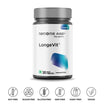
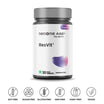
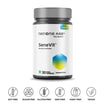
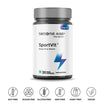
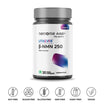
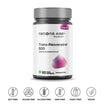
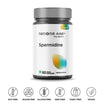
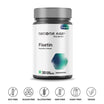
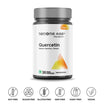
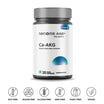
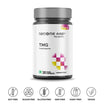
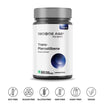
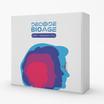
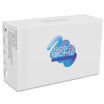
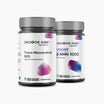
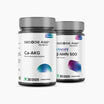
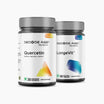
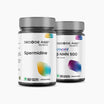
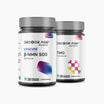
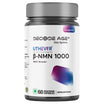
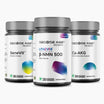
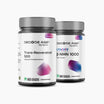
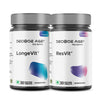
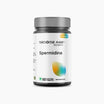
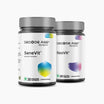
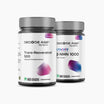
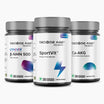
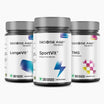
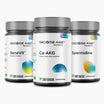
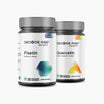
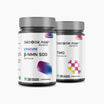
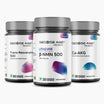
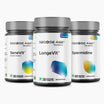
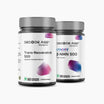

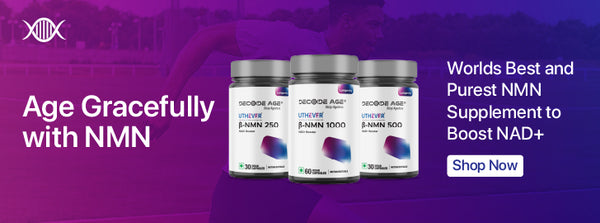
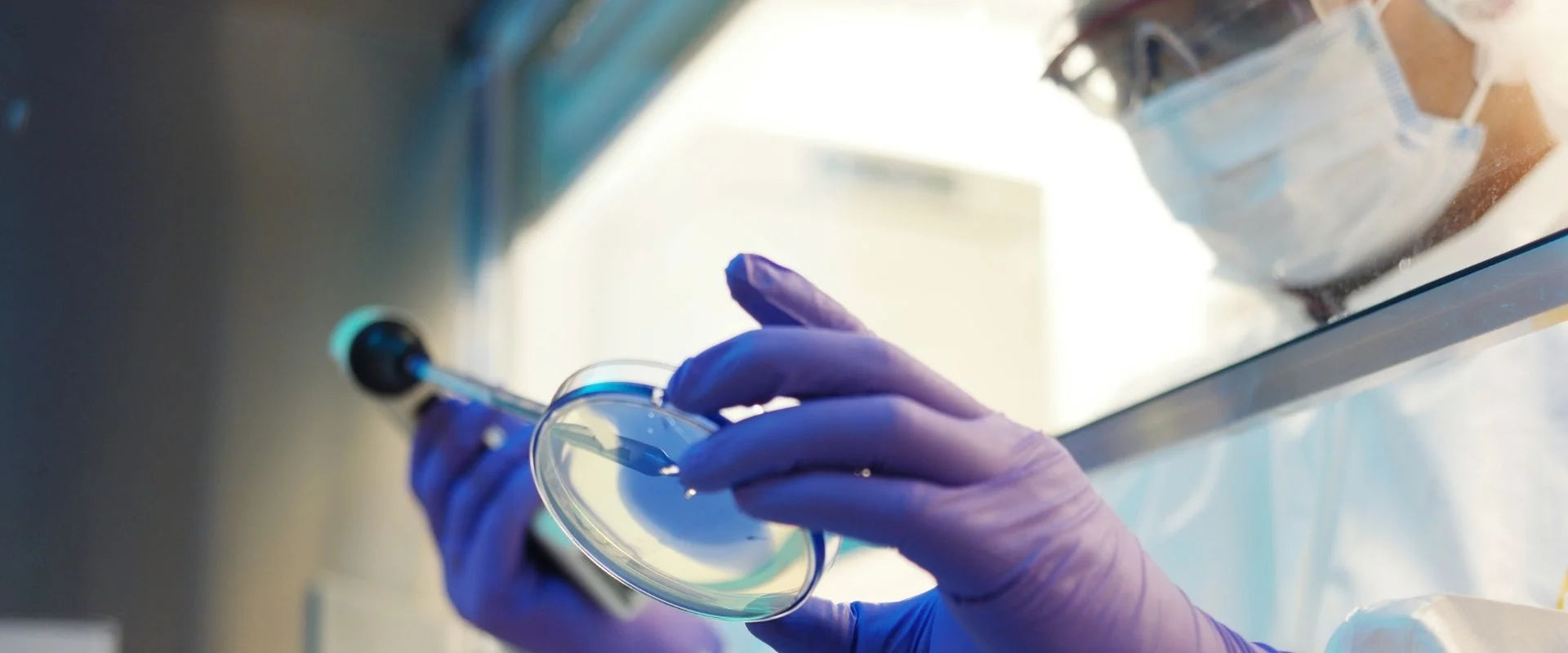
Leave a comment
This site is protected by reCAPTCHA and the Google Privacy Policy and Terms of Service apply.